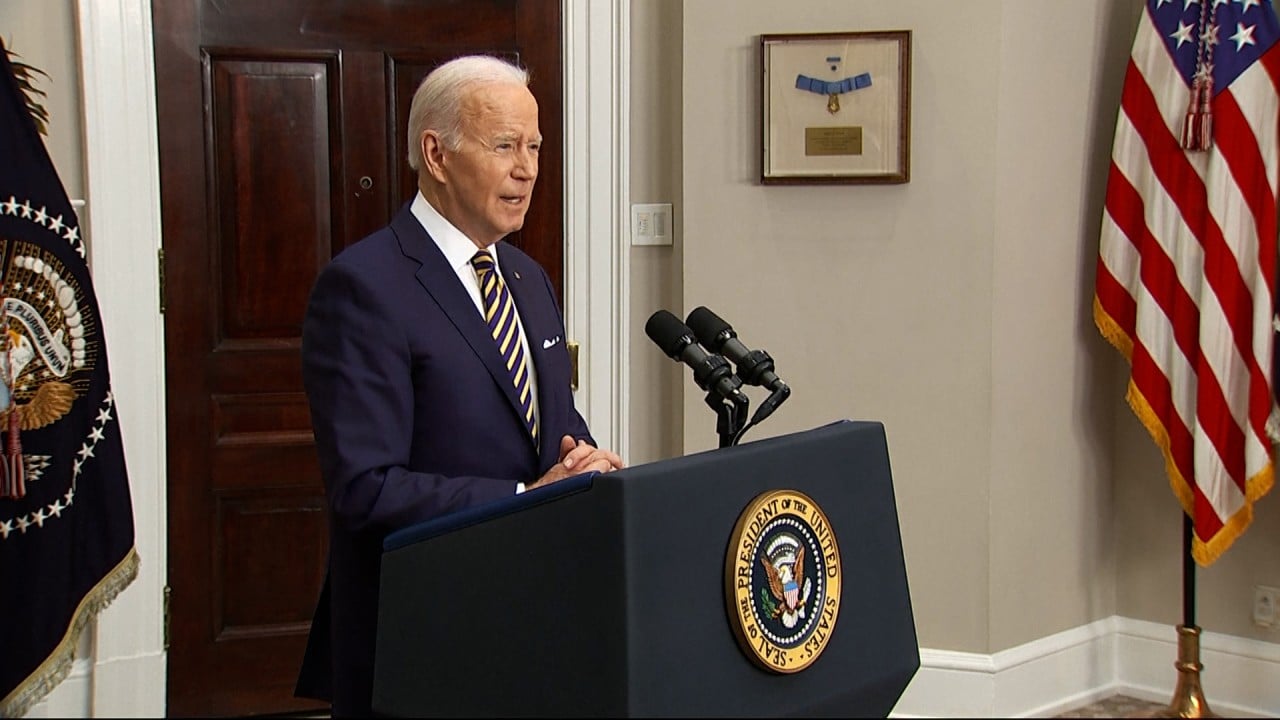
Why Ukraine war should turbocharge US transition to renewable energy
- America is in a bind as oil and gas prices shoot up but it cannot afford an energy U-turn or to consider deals with its adversaries in Opec. Its only real choice is to complete its move to green energy
The war in Ukraine has laid bare the West’s overdependence on Russian oil and gas. Yet, simply trading Russian oil for that produced in Iran or Venezuela is self-defeating; we are simply storing up geopolitical issues for later.
The only way for the United States to strengthen its hand at the negotiating table is to complete its transition to renewable energy and detangle itself from the web of dependency spun by hydrocarbons.
The move has exacted a heavy cost on American people and businesses, and forced Biden to go cap in hand to Opec for more oil.
Even if Opec were to play ball, it would mean the US doing deals with the enemy and putting the power back in the hands of autocrats – exactly what Biden sought to avoid by shutting off Russian supplies. Becoming reliant on countries such as Iran, Saudi Arabia and Venezuela would significantly weaken America’s hand at the negotiating table.
Getting into bed with such adversaries would give them leverage when it comes to easing sanctions or compromising on human rights. It would risk going against everything Biden and US democracy stand for.
That leaves Biden with only two viable options: increase domestic oil drilling projects or turn completely to renewable energy. The first is a non-starter – it would represent a dramatic U-turn on Biden’s decision to halt new oil and gas drilling on federal lands this year.
He would also have to tear up plans for a clean energy grid by 2035 and massive investments in electric vehicles and infrastructure to achieve net zero carbon emissions by 2050, all part of his ambitious US$2 trillion green investment plan.
The only way to save face and maintain geopolitical influence, not to mention the support of the Democratic Party, while ensuring America’s political enemies hold as little sway over it as possible, is to turbocharge the transition to renewable energy without delay.
War is forcing world towards greater food and energy sustainability
The switch won’t happen overnight. Biden needs to engage with and encourage the private sector to drive this green revolution. The key is to put the right investment and infrastructure in place, and establish a sustainable recovery task force of business leaders to work alongside the federal government.
If the US is to strengthen its position as a superpower in the face of growing Russian aggression and in an increasingly hostile and divided world, it must act now to solve the looming energy crisis.
The Ukrainian conflict cannot derail America’s transition to renewable energy. If anything, the war has shown just how acute the need is to detangle ourselves from the global hydrocarbon market.
Joshua Jahani is a lecturer at Cornell and New York University and an investment banker



